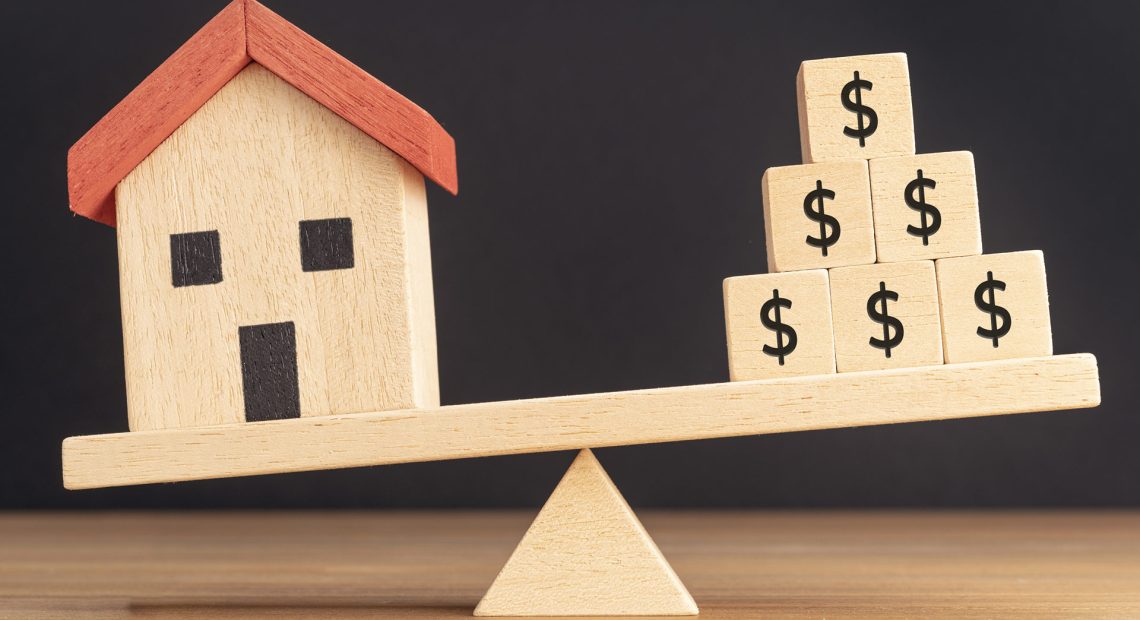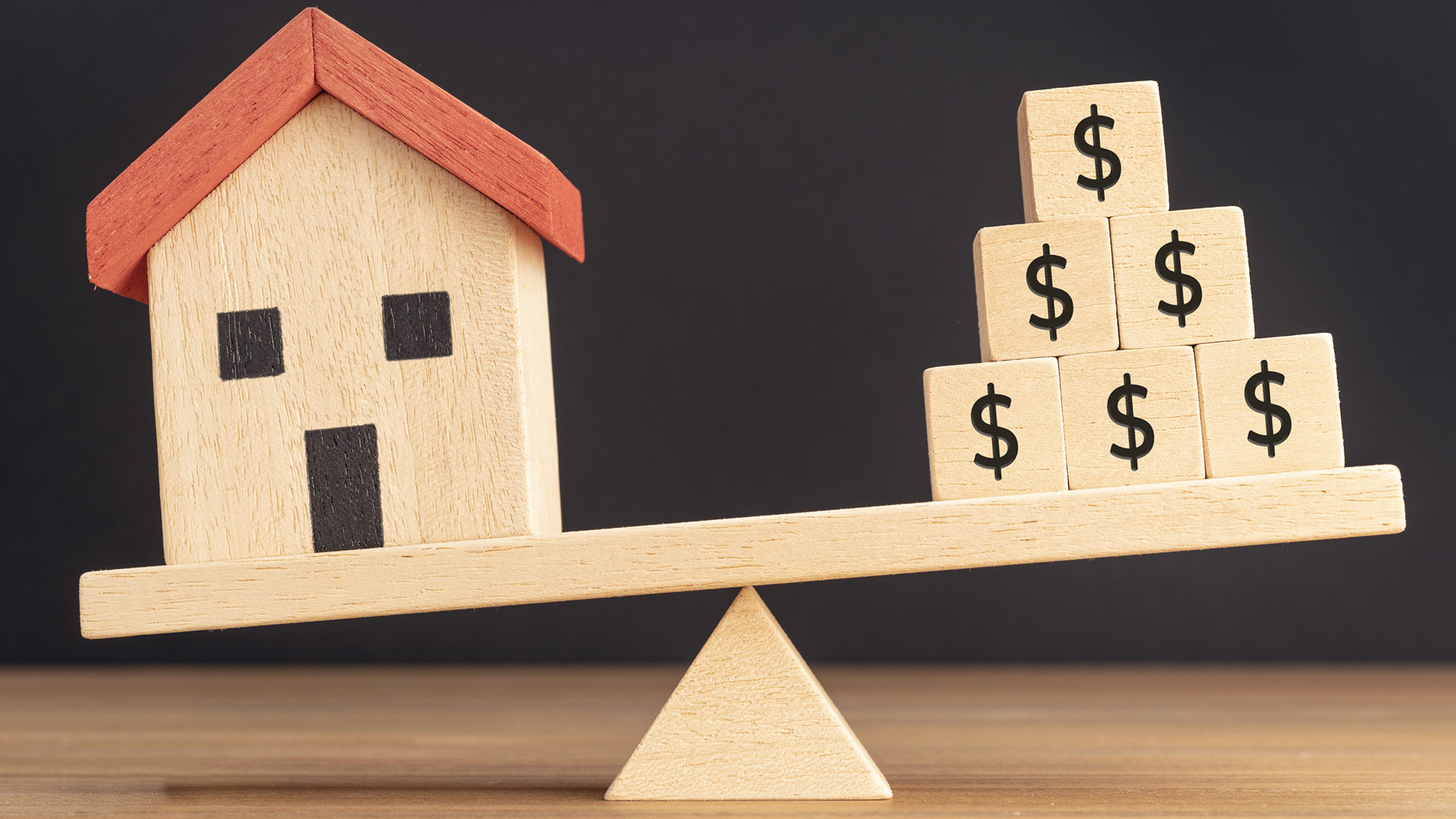
Paying Off Your Mortgage Early
Whether to Do So Depends on Several Factors
By Barbara Trombley, MBA, CPA

Should you pay off your mortgage early? This is a common question that financial planners get, and the answer is not always what you may be thinking.
According to the Federal Reserve Bank of St. Louis, historic mortgage rates peaked in 1981 at a 30-year fixed rate of 18.63%. Throughout the 1980s, the 30-year fixed rate steadily declined to a lofty 10%+ in 1990.
According to historical data provided by the U.S. Department of Housing and Urban Development, the average price of a house sold in 1980 was $76,400. Using these numbers and an online mortgage calculator, a $60,000 mortgage payment in 1980 would be $935 per month. This would have been an extraordinary burden for the average family. Paying off a mortgage as soon as financially possible would have been an excellent financial move at that time.
Fast-forward to our reality in the last few years. Those who were lucky enough to buy before the Federal Reserve started increasing interest rates after the pandemic were able to lock in historically low mortgage rates. It was not unheard of to get a 30-year, fixed-rate mortgage under 3%.
Barbara Trombley
“You may need more money than you think in the future due to healthcare costs, inflation, family needs, etc., and if it is tied up as equity in your house, it may be difficult to access.”
Even if you didn’t purchase your house in the last few years, if your credit was good, you would have been able to refinance to get these terms. The same $60,000 mortgage in 1980, calculated at 3% interest, would result in a monthly payment of $253 versus $935 at 18.63% — a huge financial difference.
Low-rate mortgages should be considered good debt. Why is it called good debt, and what is bad debt? I would consider good debt to be a mortgage, car loan, and some student loans. These types of loans may increase your future net worth or help you achieve your goals. Most people do not have hundreds of thousands of dollars in the bank to purchase a house, so a mortgage is a great tool to achieve home ownership. Purchasing a car can be imperative to get to a job for many people. A small loan, when necessary, would be considered good debt.
The same argument would hold for student loans. Of course, we do not want students to be burdened by debt. But for many conscientious students, loans are the only way to achieve their academic dreams and set them up for a financially stable future.
Bad debt can derail your financial goals with high-interest rates. The main source of bad debt that comes to mind would be credit cards, especially when used for discretionary purchases. Credit cards have notoriously high interest rates, and many people are not good at managing the debt. If you are paying off your charges in full each month, then the interest rate does not come in to play. Other sources of bad debt would be many personal loans and payday loans. Payday loans can be extraordinarily damaging, with interest rates as high as 30%. These types of loans prey on economically disadvantaged people who need cash before their actual payday.
Assessing Your Needs
So, should you pay off your mortgage early? My personal point of view is that, if mortgage debt increases your net worth over time, and you are investing your funds elsewhere, it is good debt to have.
Paying off a mortgage early, for many people, would result in becoming ‘asset rich’ and ‘cash poor.’ I like to use the phrase ‘living in a piggy bank’ to describe having your money tied up in a primary home. You may need more money than you think in the future due to healthcare costs, inflation, family needs, etc., and if it is tied up as equity in your house, it may be difficult to access.
Also, many homeowners mistakenly think it is best to leave a debt-free house to their kids. In my experience, most ‘kids’ do not want their parents’ home or cannot afford the upkeep. Upon their parents’ death, they will sell the house quickly and pay off any mortgage on the property and keep the remaining proceeds.
If you have spent the last 30 years diligently paying your monthly mortgage and it is fully paid, that is something to be proud of. If you have purchased a property in the last 15 or 20 years, think carefully and weigh the pros and cons with a financial advisor before making a hasty decision.
Barbara Trombley is a financial planner with Wilbraham-based Trombley Associates Investment and Retirement Planning. Securities offered through LPL Financial. Member FINRA/SIPC. Advisory services offered through Trombley Associates, a registered investment advisor and separate entity from LPL Financial. This material was created for educational and informational purposes only and is not intended as ERISA, tax, legal, or investment advice. If you are seeking investment advice specific to your needs, such advice services must be obtained on your own, separate from this educational material.






